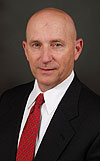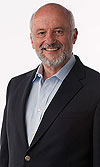|
Have a safe day!
Tuesday, April 17
2 p.m.
Computing Techniques Seminar - Curia II
Speaker: Frank Winter, The University of Edinburgh
Title: Scaling SciDAC Lattice QCD Software to GPU Enabled
Parallel Systems
3:30 p.m.
DIRECTOR'S COFFEE BREAK - 2nd Flr X-Over
4:00 p.m.
Accelerator Physics and Technology Seminar - Curia II (NOTE LOCATION)
Speaker: William A. Barletta, Massachusetts Institute of Technology
Title: Accelerator Education in America
Wednesday, April 18
12:30 p.m.
Physics for Everyone - Auditorium
Speaker: Tom Kroc, Fermilab
Title: Fighting Cancer With Neutrons
2 p.m.
LHC Physics Center Topic of the Week Seminar - Sunrise WH11
Speaker: Can Kilic, University of Texas
Title: The Collider Phenomenology of Vectorlike Confinement
3:30 p.m.
DIRECTOR'S COFFEE BREAK - 2nd Flr X-Over
4 p.m.
Fermilab Colloquium -
One West
Speaker: Aephraim M. Steinberg, University of Toronto
Title: Quantum Measurement and the Real World
Click here for NALCAL,
a weekly calendar with links to additional information.
Upcoming conferences
|
|
Tuesday, April 17
- Breakfast: Bagel sandwich
- Tomato bisque soup
- Lemon pepper club
- Liver & onions
- Smart cuisine: Korean garlic chicken
- Grilled chicken caesar salad wrap
- Assorted calzone
- Rio grande taco salad
Wilson Hall Cafe Menu
|
|
Wednesday, April 18
- Southern California crepes
- Spicy chicken
- Tomato & avocado salad
- Chocolate fondue w/ fresh fruit
Friday, April 20
Dinner
Closed
Chez Leon Menu
Call x3524 to make your reservation.
|
|
Road D closure postponed
Fermilab's Road D, near CDF's building and west parking lot, will be closed from Tuesday, April 24, through Thursday, April 26. Pedestrian crossings are not allowed in the closed road area.
The detour route is Road B to Road C to Batavia Avenue.
|
New interim head of the Office of Program and Project Support announced
 |
| Carl Strawbridge |
Carl Strawbridge is bringing fresh eyes and new ideas to Fermilab's Office of Program and Project Support. He was named the interim head of OPPS on April 3.
"My goal is to support current OPPS operations, while developing a coherent, integrated strategy and plan for the future of this relatively new office," Carl Strawbridge said. "I'll spend some initial time gathering information to fully understand the mission of the OPPS, looking at what's going well, building on the work of Peter Garbincius who formed and led the OPPS from it's inception, and understanding where there's room for improvements."
Bruce Chrisman, Fermilab's chief operation officer, says that Strawbridge will assess the needs of the OPPS and work on a plan of improvement.
"Given his heavy project management experience, Carl will develop a strategy to strengthen the overall planning process at the laboratory," said Bruce Chrisman, Fermilab's chief operating officer.
Strawbridge, formerly an employee at Oak Ridge National Laboratory and more recently a management consultant for many DOE projects, spent many years in a laboratory setting.
Read more
—Ashley WennersHerron
|
ES&H survey reminder
There is one week left for Fermilab employees to complete the survey on ES&H culture. If you feel you mainly supervise personnel, please fill out the management/supervisor survey, otherwise please fill out the employee survey. If you do not have access to a computer, there are ones available on the ground floor of Wilson Hall across from the Credit Union. There will also be paper surveys made available. Please contact your supervisor for more information. Responses are anonymous and will automatically be stored in a database corresponding to organizational groups at the Division/Section/Center level.
|
Majorana particle glimpsed in lab
From BBC News, April 16, 2012
Scientists think they may finally have seen evidence for a famously elusive quarry in particle physics.
The Majorana fermion was first predicted 75 years ago - a particle that could be its own anti-particle.
Now Dutch researchers, who have devised some exotic and minute circuitry to test for the Majorana's existence, believe their results show the fermion to be real.
The team has reported the details of its experiments in Science magazine.
"It opens up some very interesting ideas," said Leo Kouwenhoven from the Delft University of Technology.
Majoranas should behave quite differently from more familiar matter particles, such as electrons.
Read more
|
Astrophysics: Fresh light on stardust
From Nature, April 11, 2012
Chemical elements that are crucial for building Earth-like planets and living organisms have their origin in ageing stars and stellar deaths. The nuclear processes that create these elements are well understood, but the mechanisms that transport them to the stellar surfaces and out into interstellar space are still a matter of intensive research. On page 220 of this issue, Norris et al.1 report the detection of silicate particles about 600 nanometres in diameter in the immediate vicinity of several cool giant stars. This result confirms the predictions of models2 that explain how gas can escape stellar gravity and become part of the cosmic-matter cycle.
Stellar explosions known as supernovae have considerable input into the production and dispersion of heavy elements (those heavier than helium), but they are not the sole contributors. Stars, including the Sun, release continuous outflows of gas, called stellar winds, for most of their lives.
Read more
|
|
FALC meeting
 |
|
Fermilab Director Pier Oddone |
The Funding Agencies for Large Colliders meeting took place this week in Shonan Village, Japan. I presented the Fermilab program and reported on the activities of International Committee on Future Accelerators. FALC brings together representatives from the principal countries supporting particle physics. The funding agencies present this year hailed from the countries of Japan, Korea, China, the United States, Canada, the United Kingdom, Italy, Germany, France and Spain.
The meeting featured presentations from the various world regions and discussions of the future organization of major global projects, such as the ILC. The reports from Europe described great stability in their plans for the future, despite the European financial crisis. CERN Director-General Rolf Heuer described the LHC program for the next two decades and the development of new fixed-target experiments, including a neutrino beam for short-baseline experiments based on the SPS accelerator. The stability of the primarily CERN-based European program follows the massive investment on the LHC that now attracts ten thousand users from all over the world.
The developments in Asia are very impressive with acceleration across multiple fronts. The program in Japan has recovered quickly after the earthquake, and there are impressive plans for the KEK Super-B factory, various proposals for expanding the T2K neutrino program either with HyperK or with a second large detector in Korea (T2KK) and a vital and active program towards the ILC. China reported on the fresh success of the Daya Bay reactor neutrino experiment and the successful upgrade of the Beijing e+e- collider. China is also developing a very deep underground laboratory, named Jinping. They will also develop a neutron spallation source, satellite programs and cosmic-ray arrays. It is also developing an intense proton source for Accelerator Driven Systems. Korea has recently produced results from the RENO reactor experiment competitive with the Daya Bay results. The Korean Basic Science Initiative is moving at warp speed and will spend $5 billion in the next five years and incorporate up to 3,000 researchers across a few dozen institutes and build a heavy-ion accelerator laboratory. India is also moving ahead with ambitious plans for the India Neutrino Observatory, participation at CERN and in Fermilab's experimental program and Project X, participation in LIGO and the development of accelerators for their own domestic program.
The turmoil in mounting new projects of scale in the US such as LBNE is in dramatic contrast to the stability and high level of funding in Europe and the vitality and thrust of the growing Asian programs. While the programs in Europe and Asia appear to be in very good shape, this did not come without major effort from their laboratories and communities for many years. We must persevere in research in our country to achieve again the ambitious programs that will be beacons of discovery in the world such as we created in the past.
|
|